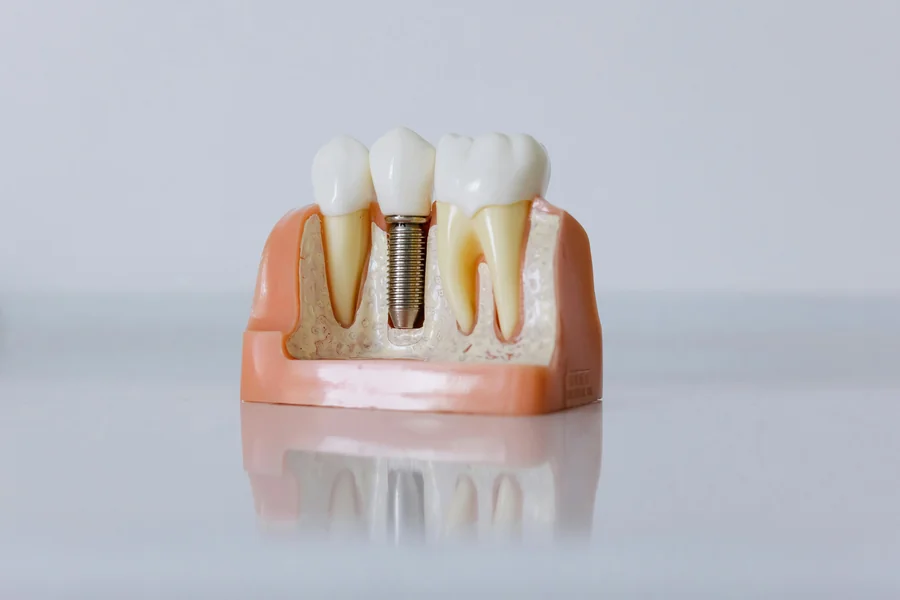If you have missing teeth, you should know that the issue is affecting more than just your smile. It can lower your confidence and change how you speak or eat. Thankfully, today’s dental care provides a strong solution: dental implants. These implants are now one of the most trusted ways to replace lost teeth.
If you’re wondering whether they’re right for you, understanding their benefits can help. Dentists around the world recommend them for both function and appearance.
But there’s more to these implants than meets the eye. Here’s what you should know before opting for a dental implant.
Why are Dental Implants Different from Other Options?
In certain places, like Philadelphia, a study suggests that there’s a higher dental treatment burden in patients taking different kinds of biologic agents. This particular population may have more dental problems and need more frequent or complex treatments.
The study suggests that restorative treatments, which include complex procedures like dental implants, can help greatly in this regard. Hence, any good dentist in Philadelphia who has extensive experience in the field might often suggest dental implants for such patients. Of course, this suggestion will vary from case to case and, at times, dentist to dentist.
However, the main question is why choose dental implants over the available options? A dental implant will replace both the tooth and its root, something that’s not possible through dentures or bridges. A dentist will place the dental implant directly into your jawbone. Over time, the implant will fuse with the bone and form a strong, lasting base.
That stability makes them feel more like natural teeth than other solutions. Dentists often prefer this method for patients needing long-term dental treatment.
Other options can shift or wear down neighboring teeth. Bridges require shaving down healthy teeth, while dentures may loosen and cause discomfort. Implants avoid these issues entirely. Once healed, they function independently of other teeth. They also don’t move while speaking or chewing.
How Do Dental Implants Improve Oral Health?
Dental implants aren’t just for filling empty spaces. They help your jawbone stay strong and keep your face from changing shape. When a tooth goes missing, the bone under it starts to shrink. Over time, that can affect how your face looks.
Your cheeks might sink, and your jawline can look less defined. Implants act like real teeth and keep the bone active, which prevents that loss.
They also make daily cleaning much easier. Unlike bridges, which can trap food and are tough to floss around, implants don’t get in the way. Besides, according to Absolute Smile, risks associated with dental implants themselves are rare.
Proper hygiene is essential for long-term oral health. Your dental practice will likely guide you on care routines post-surgery to protect your investment.
Why Comfort and Functionality Matter
It’s hard to enjoy food when you’re worried about your teeth slipping. Dentures, while common, often create pressure spots. They may cause swelling and even discoloration of the tissues.
Dental implants don’t cause those problems. They stay in place and allow full chewing power. You can bite into crisp apples or chew steak without worry.
This restored function also makes daily life easier. You don’t need special adhesives or nightly soaking. With implants, your teeth become a permanent part of your routine.
Dental implants look, feel, and function like real teeth. Many people forget they even have them. That comfort can boost your confidence. It also improves your overall quality of life.
How Do Implants Boost Your Mental and Social Well-being?
People who get dental implants often report a boost in self-esteem. They’re no longer embarrassed by gaps or removable appliances.
Social interactions become more enjoyable. You no longer worry about speaking clearly or laughing too loudly. Confidence in your smile can even improve your job prospects. First impressions matter, and a complete smile helps you put your best foot forward.
This mental shift is one of the most underrated benefits. Your dental treatment becomes more than just a health decision. It becomes a lifestyle upgrade.
What to Expect After the Procedure
Healing time varies, but most people recover quickly. Any discomfort usually fades within a week.
Your dental care provider will suggest eating soft foods and keeping your mouth very clean while you heal. After you’re done healing, a custom crown is placed on your implant. It’s designed to match the color and shape of your natural teeth.
Aftercare is crucial. Regular check-ups and cleanings help ensure the implant remains secure. Avoid smoking or poor hygiene, as these can cause failure. If you take good care, your implants will last 15 years or even more. Some even last a lifetime. Your dentist will teach you how to protect your new smile for the long haul.
Costs and Long-Term Value
Dental implants do come with a higher upfront cost compared to other dental services. On average, dental implants for one tooth will cost you between $3,000 and $7,000.
Despite the high costs, dental implants offer better long-term value. Dentures and bridges often need replacement once every five or ten years. Implants, with proper care, are far more durable.
Think of it as a one-time investment in your health and confidence. You save money over time by avoiding repeated dental treatment.
Dental implants offer more than just a way to replace missing teeth. They restore function, protect your oral health, and improve how you feel about yourself.
With the right dental care and guidance from skilled dentists, the journey is smoother than you might think. If you’re facing tooth loss or exploring options, talk to a dental practice that understands your unique needs.






